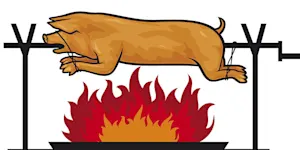What Makes This Word Tick
The word "bereave" is steeped in emotion, primarily used to refer to the loss, especially through someone's death. This word, often solemn in tone, carries with it the weight of grief and sorrow, reminding us of life's impermanence.
If Bereave Were a Person…
If "bereave" were a person, they'd likely be a solemn, reflective figure, perhaps dressed in black and embodying a deep, contemplative atmosphere. They might wander through autumn leaves, lost in thought, comforting others with a gentle understanding.
How This Word Has Changed Over Time
"Bereave" has maintained its somber meaning through the ages, echoing loss and deprivation. While its core focus remains the same, its usage has narrowed: in olden times, one could be "bereaved" of land or status, not just loved ones.
Old Sayings and Proverbs That Use Bereave
Though not commonly found in proverbs, the sentiment of "bereave" is reflected in sayings like "Time heals all wounds," highlighting the deep pain of loss before eventual healing.
Surprising Facts About Bereave
It's surprising to learn that "bereave" once had a broader application beyond grieving the dead. It meant to 'take away' or 'deprive,' whether of power, possessions, or people, showcasing its versatile yet somber roots.
Out and About With This Word
You'll often hear "bereave" in formal or literary contexts, such as in a eulogy or discussions about personal loss. It's a word that whispers through the chapel aisles, connecting shared human experiences of mourning.
Pop Culture Moments Where Bereave Was Used
"Bereave" hasn’t headlined many pop culture moments but subtly informs dramatic narratives. Films and songs dealing with loss use its undertone to enhance the emotions of their stories, often leaving audiences teary-eyed.
The Word in Literature
In literature, "bereave" tends to appear in works that delve into themes of loss and resilience. Whether in classic tragedies or modern dramas, its presence adds a layer of depth and gravity to the storyline.
Moments in History with Bereave
Think of times of great loss, like the world wars, where nations were "bereaved" of so many. The word unassumingly captures the spirit of those periods, echoing the deep sorrow felt during such monumental events.
This Word Around the World
While "bereave" doesn’t have direct translations in many languages, the concept of grief is universal. Different cultures express bereavement through rituals and traditions, offering a fascinating peek into global mourning practices.
Where Does It Come From?
Originating from Old English "berēafian," the word "bereave" is related to "reave," meaning to plunder or take away. Its etymology echoes an older world where losing wasn't just emotional but could be tangible, like the loss of land.
How People Misuse This Word
Sometimes "bereave" is mistakenly used to mean any kind of loss, like losing a pet or object, which might not quite capture its intended gravity associated with human death.
Words It’s Often Confused With
Deprive: Both involve taking away but "deprive" doesn't carry the same emotional weight.
Grieve: The act of feeling deep sorrow, while "bereave" refers to the state of being without something or someone.
Mourn: Similar, but "mourn" is about the outward expression of grief.
Additional Synonyms and Antonyms
Synonyms for "bereave" include "deprive," "strip," and "rob." Antonyms might be "endow," "supply," and "furnish," each bringing back what was taken.
Want to Try It Out in a Sentence?
The family was bereaved of their matriarch when she passed peacefully in her sleep, leaving behind a legacy of love and wisdom.
















